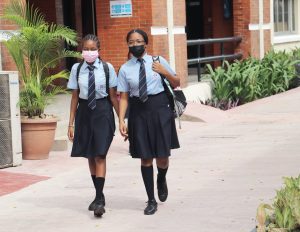The Cost of Schooling in South Africa for International Students
South Africa has become an attractive destination for international students seeking quality education at a relatively affordable cost. With its rich culture, advanced educational infrastructure, and world-renowned universities, many students choose South Africa to pursue undergraduate and postgraduate degrees. However, understanding the cost involved is essential for proper budgeting.
This blog covers all essential expenses for international students in South Africa, from tuition fees to accommodation, travel, and more.
Why Consider Studying in South Africa?
👉Scholarships for Studying Abroad: 2024 – 2025 scholarship guide

South African universities offer an extensive range of academic programs led by experts across various fields. Key areas of study include public health, biomedical sciences, social sciences, and finance. One of the top institutions, the University of Cape Town (UCT), is ranked among the top 1% globally. It boasts a favorable 14:1 student-to-staff ratio and attracts a global student body, with 13% of its students representing over 100 countries across six campuses.
Post-graduation, ample research and career opportunities await, as South African graduates are highly regarded by industry leaders due to their quality education. Universities in South Africa are designed to cater to different preferences, whether students prefer small, medium, or large campuses.
Support for international students is robust, offering networking opportunities that are vital for future careers. On a student visa, international students are allowed to work up to 20 hours per week and can also gain practical experience while studying.
Many South African universities offer virtual campus tours, giving prospective students a chance to explore facilities remotely. Beyond academics, South Africa offers a stunning landscape, a mild climate, and a rich cultural heritage. Students can engage in various extracurricular activities such as arts, literature, and music, contributing to a well-rounded educational experience.
Cost Breakdown
The cost of studying in South Africa is relatively affordable. Tuition fees for international students range from $4,000 to $10,000 annually, depending on the institution and program. Most universities deliver programs in English, which is one of South Africa’s official languages. Living costs are quite reasonable, averaging around $600 per month for accommodation, food, and other necessities.
International students also have access to scholarships, particularly at institutions like UCT, the University of the Witwatersrand, the University of Pretoria, Rhodes University, Nelson Mandela University, and the University of KwaZulu-Natal. These scholarships often require a separate application process with strict deadlines, and students must still demonstrate sufficient funds to cover tuition costs.
How to Apply to South African Universities
The academic year in South Africa typically runs from February to November, divided into two semesters. Application windows open between May and June and close by August. Prospective students apply directly through individual university websites.
South African universities recognize major public exam results, such as A-levels and the International Baccalaureate (IB), which are converted to the National Senior Certificate (NSC) using specific conversion tables. However, BTEC qualifications are generally not accepted.
For students from the U.S., a high school diploma is equivalent to the NSC, though some universities may request SAT or ACT scores. Non-English speakers will need to provide proof of language proficiency through tests like IELTS or TOEFL, although those with an IGCSE English qualification may be exempt.
During the application process, universities usually require academic transcripts, recommendation letters, a statement of purpose, a valid passport, a CV or résumé, and proof of financial resources. Depending on the program, standardized test results such as the SAT or IELTS may also be necessary. It’s critical to ensure that all required documents are submitted before the university’s deadline. Once accepted, students will receive information about scholarship opportunities.
How to Apply for a South African Student Visa
After receiving an admission offer from a South African university, international students must confirm their spot with the Department of Higher Education to obtain a proof-of-acceptance letter, which is required for the visa application.
Students should then schedule an appointment at their nearest South African embassy or consulate. It’s advisable to start preparing visa documents early, which include a visa application form, a valid passport, proof of financial means, and the acceptance letter. The visa application fee is usually around $25 and is paid at the time of the appointment.
Students and parents should note that counselors cannot assist if there is insufficient or incorrect documentation, which could result in the visa being denied.
During the visa appointment, applicants must submit their documents and may undergo a brief interview. Processing times vary, but decisions typically take between four to eight weeks, so starting the visa process promptly is important.
A student visa remains valid for the duration of the course and can be converted to a work visa after graduation, provided the student secures a job offer in South Africa.
By considering these factors, international students can plan their educational journey to South Africa effectively, ensuring they have the financial means, proper documentation, and knowledge of the visa process to have a smooth experience. South Africa offers a dynamic blend of academic excellence and cultural richness, making it a unique destination for higher education.
1. Tuition Fees
The cost of tuition varies significantly depending on the program, institution, and level of study. Below is a breakdown of estimated tuition costs at some top universities in South Africa:
- University of Cape Town (UCT)
- Undergraduate: $3,500 – $6,000 per year
- Postgraduate: $2,500 – $4,500 per year
- University of the Witwatersrand (Wits)
- Undergraduate: $3,000 – $5,000 per year
- Postgraduate: $2,800 – $4,000 per year
- Stellenbosch University
- Undergraduate: $3,200 – $5,800 per year
- Postgraduate: $2,700 – $4,200 per year
- University of Pretoria
- Undergraduate: $3,000 – $4,500 per year
- Postgraduate: $2,500 – $4,000 per year
- Rhodes University
- Undergraduate: $2,900 – $4,500 per year
- Postgraduate: $2,600 – $3,800 per year
2. Accommodation Costs
Accommodation costs vary depending on whether a student chooses university-provided residences or private housing:
- On-campus Accommodation: Ranges from $2,000 to $4,500 per academic year. This includes utilities, laundry facilities, and shared services such as Wi-Fi.
- Off-campus Private Accommodation: Depending on the location and type of apartment, the average cost is around $250 – $600 per month. This excludes utilities like water and electricity, which can add an extra $50 – $100 per month.
In cities like Cape Town or Johannesburg, accommodation can be more expensive, but in smaller cities like Grahamstown or Bloemfontein, costs are lower.
3. Travel Costs
International Travel:
- A one-way flight to South Africa can range from $600 to $1,200 depending on the departure city, time of booking, and airline.
Local Transport:
- Public transportation, such as buses, taxis, and the Gautrain (in Johannesburg), costs around $30 to $50 per month for regular commuting.
- Some students also use Uber or Bolt for daily commutes, which can be slightly more expensive depending on frequency.
Travel Insurance:
- Health and travel insurance are essential for international students. The average cost of insurance is $400 – $800 per year, depending on the coverage.
4. Visa and Application Fees
International students need a study visa to study in South Africa. The cost of applying for a visa is around $150 – $200. Processing times can vary, so it’s advisable to apply at least 3 months before your course starts.
In addition to the visa fee, international students should also budget for medical examination fees, which can range from $50 to $100 depending on the country of residence.
5. Miscellaneous Costs
In addition to tuition, accommodation, and travel, students should also plan for additional expenses:
- Textbooks and Course Materials: Around $300 – $500 per year.
- Food and Groceries: Around $150 – $250 per month, depending on individual preferences.
- Leisure and Entertainment: Depending on lifestyle, students spend about $50 – $150 per month on social activities, dining out, or exploring tourist attractions.
6. Additional Support for Success
To succeed academically and socially in South Africa, international students should budget for the following:
- Language Assistance: If English is not your first language, enrolling in English language courses (around $500 – $1,000 per course) can help improve academic performance.
- Student Support Services: Most universities provide student counseling, academic support, and career services, which can be beneficial. This is typically included in tuition fees.
Top Schools for International Students in South Africa

Here is a list of top institutions international students can consider applying to, along with their approximate tuition fees:
- University of Cape Town (UCT)
- Renowned for business, engineering, and medicine.
- Tuition: $3,500 – $6,000 annually.
- University of the Witwatersrand (Wits)
- Known for engineering, law, and business programs.
- Tuition: $3,000 – $5,000 annually.
- Stellenbosch University
- Popular for agriculture, engineering, and the arts.
- Tuition: $3,200 – $5,800 annually.
- University of Pretoria
- Focuses on law, education, and health sciences.
- Tuition: $3,000 – $4,500 annually.
- Rhodes University
- Known for journalism, humanities, and social sciences.
- Tuition: $2,900 – $4,500 annually.
- University of KwaZulu-Natal (UKZN)
- Strong in medical sciences and humanities.
- Tuition: $2,700 – $4,000 annually.
- North-West University
- Offers top programs in education, health, and social sciences.
- Tuition: $2,800 – $4,200 annually.
- Nelson Mandela University
- Known for business studies and law.
- Tuition: $2,500 – $3,800 annually.
- University of the Western Cape
- Strong in community health, dentistry, and law.
- Tuition: $2,200 – $3,500 annually.
- University of Johannesburg
- Offers comprehensive programs in various disciplines.
- Tuition: $3,000 – $4,500 annually.
Scholarship Opportunities
While studying in South Africa is relatively affordable compared to other countries, international students can also apply for scholarships to ease the financial burden:
- MasterCard Foundation Scholars Program: Available at UCT and Wits.
- Canon Collins Scholarships: For students from Southern African countries.
- Mandela Rhodes Scholarship: For postgraduate students in any field.
Cost of schooling in South Africa as a South African
Why Consider Studying in South Africa?
South African universities offer an extensive range of academic programs led by experts across various fields. Key areas of study include public health, biomedical sciences, social sciences, and finance. One of the top institutions, the University of Cape Town (UCT), is ranked among the top 1% globally. It boasts a favorable 14:1 student-to-staff ratio and attracts a global student body, with 13% of its students representing over 100 countries across six campuses.
Post-graduation, ample research and career opportunities await, as South African graduates are highly regarded by industry leaders due to their quality education. Universities in South Africa are designed to cater to different preferences, whether students prefer small, medium, or large campuses.
Support for international students is robust, offering networking opportunities that are vital for future careers. On a student visa, international students are allowed to work up to 20 hours per week and can also gain practical experience while studying.
Many South African universities offer virtual campus tours, giving prospective students a chance to explore facilities remotely. Beyond academics, South Africa offers a stunning landscape, a mild climate, and a rich cultural heritage. Students can engage in various extracurricular activities such as arts, literature, and music, contributing to a well-rounded educational experience.
Cost Breakdown
The cost of studying in South Africa is relatively affordable. Tuition fees for international students range from $4,000 to $10,000 annually, depending on the institution and program. Most universities deliver programs in English, which is one of South Africa’s official languages. Living costs are quite reasonable, averaging around $600 per month for accommodation, food, and other necessities.
International students also have access to scholarships, particularly at institutions like UCT, the University of the Witwatersrand, the University of Pretoria, Rhodes University, Nelson Mandela University, and the University of KwaZulu-Natal. These scholarships often require a separate application process with strict deadlines, and students must still demonstrate sufficient funds to cover tuition costs.
How to Apply to South African Universities
The academic year in South Africa typically runs from February to November, divided into two semesters. Application windows open between May and June and close by August. Prospective students apply directly through individual university websites.
South African universities recognize major public exam results, such as A-levels and the International Baccalaureate (IB), which are converted to the National Senior Certificate (NSC) using specific conversion tables. However, BTEC qualifications are generally not accepted.
For students from the U.S., a high school diploma is equivalent to the NSC, though some universities may request SAT or ACT scores. Non-English speakers will need to provide proof of language proficiency through tests like IELTS or TOEFL, although those with an IGCSE English qualification may be exempt.
During the application process, universities usually require academic transcripts, recommendation letters, a statement of purpose, a valid passport, a CV or résumé, and proof of financial resources. Depending on the program, standardized test results such as the SAT or IELTS may also be necessary. It’s critical to ensure that all required documents are submitted before the university’s deadline. Once accepted, students will receive information about scholarship opportunities.
How to Apply for a South African Student Visa

After receiving an admission offer from a South African university, international students must confirm their spot with the Department of Higher Education to obtain a proof-of-acceptance letter, which is required for the visa application.
Students should then schedule an appointment at their nearest South African embassy or consulate. It’s advisable to start preparing visa documents early, which include a visa application form, a valid passport, proof of financial means, and the acceptance letter. The visa application fee is usually around $25 and is paid at the time of the appointment.
Students and parents should note that counselors cannot assist if there is insufficient or incorrect documentation, which could result in the visa being denied.
During the visa appointment, applicants must submit their documents and may undergo a brief interview. Processing times vary, but decisions typically take between four to eight weeks, so starting the visa process promptly is important.
A student visa remains valid for the duration of the course and can be converted to a work visa after graduation, provided the student secures a job offer in South Africa.
By considering these factors, international students can plan their educational journey to South Africa effectively, ensuring they have the financial means, proper documentation, and knowledge of the visa process to have a smooth experience. South Africa offers a dynamic blend of academic excellence and cultural richness, making it a unique destination for higher education
FAQs of cost schooling in south Africa
- Do South African universities require language proficiency tests?
Non-English speakers need to provide IELTS or TOEFL scores unless they have an IGCSE English pass. - When does the academic year start in South Africa?
The academic year runs from February to November, with two semesters. - What are the visa requirements for studying in South Africa?
You’ll need a letter of acceptance, proof of financial means, and other documentation for a student visa. - How long does it take to get a South African student visa?
It typically takes four to eight weeks to process a student visa. - Can a student visa be converted to a work visa after graduation?
Yes, the student visa can be converted to a work visa if permanent employment is secured. - Are virtual tours available for South African universities?
Many universities offer virtual tours to explore campuses remotely. - Do South African universities accept US high school diplomas?
Yes, but standardized test scores such as the SAT or ACT may be required. - What documents are needed to apply to South African universities?
Documents include academic transcripts, a statement of purpose, recommendation letters, and proof of funding. - What is the student-to-staff ratio at the University of Cape Town?
The student-to-staff ratio at the University of Cape Town is 14:1. - Do South African universities accept BTEC qualifications?
No, BTEC qualifications are not accepted by South African universities. - Can students apply directly to South African universities?
Yes, students apply directly through individual university websites - What are the career opportunities post-graduation in South Africa?
South African university graduates are sought after by industry leaders due to the high-quality training they receive.
Why study in South Africa?
South Africa offers diverse programs, expert faculty, and global recognition, especially in public health, social sciences, and finance.
What are the top-ranked universities in South Africa?
The University of Cape Town, University of Pretoria, and University of the Witwatersrand are top institutions.
Are international students allowed to work in South Africa?
Yes, international students can work up to 20 hours per week on a student visa.
What language are courses taught in South African universities?
Most programs are taught in English
How much are tuition fees for international students?
Tuition fees range from $4,000 to $10,000 annually, depending on the university.
What is the average cost of living in South Africa?
International students can expect living expenses around $600 per month.
Which universities in South Africa offer scholarships to international students?
Universities like the University of Cape Town, University of Pretoria, and Nelson Mandela University offer scholarships.
What are the accommodation options for international students?
Accommodation options include on-campus dormitories and off-campus housing, with costs varying by location and type.

